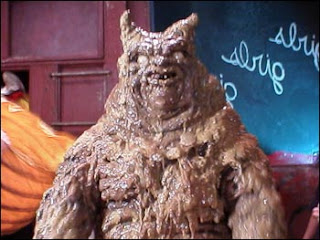Panda. Here to mess with your shit.
Penguin and Panda (Googles sobering little gifts to the SEO community) have suddenly changed the playing field, and now content is valued a lot higher than it's ever been before. Content creation is now a big part of SEO. This is a good thing, and a bad thing.
It's a good thing because content producers are becoming far more highly prized and valued. It's a bad thing because most SEO companies are flooding the Internet with low quality, spammy bollocks.
To understand why this is like it is I need to quickly highlight a few high-level core concepts of modern internet marketing.
- Links:
Only good links, from good sources, are of any interest to Google. Links mean a lot less than they used to. Anything else, like link farms and unrelated directories, are just spam. - Frequency:
Google loves fresh content. If you add 3 or more posts a week to a blog on a website, the search spiders'll adore you for it. - Social Signals:
What your friend recommend and what they like, are going to play a part in what's rated at the top of your search list. Having a social presence, as an individual or company, is now all part of the equation. - AuthorRank:
We have to foster specialists. If their content is liked, shared, etc. within the community that's going to be a plus. Individuals who are specialists in certain topics and have a genuine interest in the subject are going to get that little boost c/o Google. Google+ demands profile authentication, so this isn't something you can game (which does make having a nom de plume somewhat tricky, but that's for a later post). - Organic Distribution:
Good quality, entertaining, contentious amusing, informative, and valuable (to the audience) content is king. Not just blog posts - but white papers, videos, Infographics, curation, digital press releases, podcasts, advertorials, whatever. If you provide a genuine service, in an accessible format for the audience, and answer and research real consumer questions it's going to give you a clear advantage when it comes to other people distributing your stuff.
The SEO Content Marketing Monster. You know who you are.
This theory's admittedly based on a few obvious things:
- We're reliant on crowd sourcing quality, and a discerning audience.
- Right now, setting up the likes of AuthorRank relies on us opting in to do so by inclusion of code on pages etc., and we're going to have to start opting in to share our data more.
- SEO companies not (somehow) gaming signals in the future.
My big tip? For gods sake don't buy (or produce) mediocre, bulk, untargeted, and unstrategic content - you'll be throwing your time and money away in the long term.
In the future, if your stuff's not original and not good, how's it going to get seen? It could well be that Google has found the ultimate filter by using people as quality control through social and accreditation. It could well make the Internet a better place.





